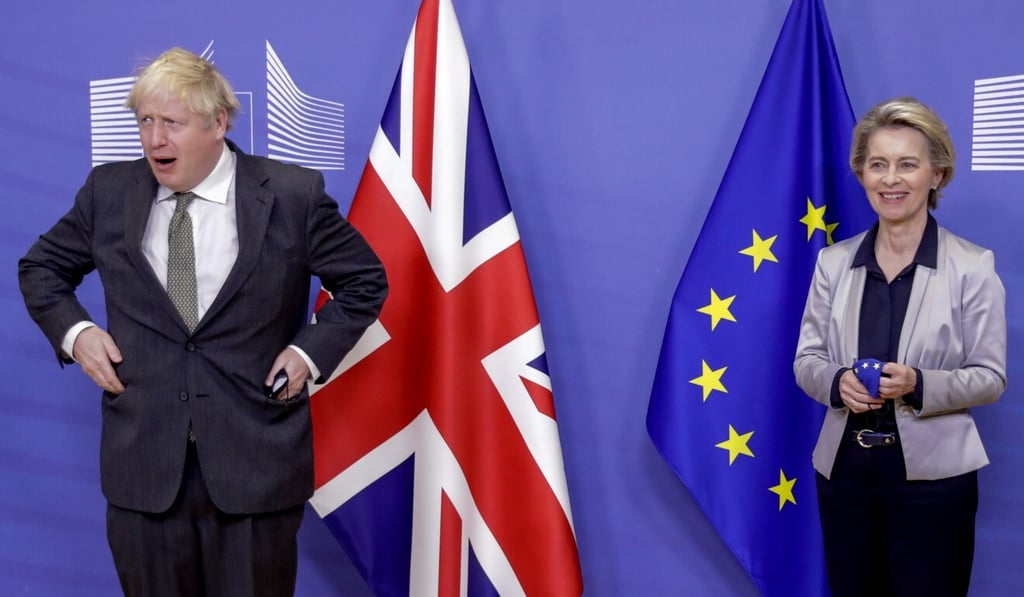Britain must ‘get ready’ for no-deal Brexit, Boris Johnson says
- PM vows to go the ‘extra mile’ to reach an agreement, but instructed his government to prepare for the country to crash out of the EU’s single market
- Johnson says his ministers agree that the deal on the table is ‘not really at the moment right for the UK’

01:33
No-deal Brexit 'a strong possibility', says UK Prime Minister Boris Johnson
UK Prime Minister Boris Johnson on Thursday vowed to go the “extra mile” for a Brexit trade deal but instructed his government to prepare for Britain to crash out of the European Union’s single market at the end of this year.
The gloom deepened over the drawn-out Brexit saga after Johnson and European Commission president Ursula von der Leyen, over a combative dinner in Brussels, declared a Sunday deadline to decide whether to keep talking or give up.
Johnson stressed he wanted his negotiators to “keep going, and we’ll go the extra mile” for a last-gasp deal, and said he was ready to travel again to Brussels, as well as to Paris or Berlin, to get one over the line.
But speaking after a rare evening meeting of the cabinet, the Conservative leader said his ministers “agreed very strongly with me that the deal on the table is really not at the moment right for the UK”.

“So what I told the cabinet this evening is to get on and make those preparations” for no deal, he said.